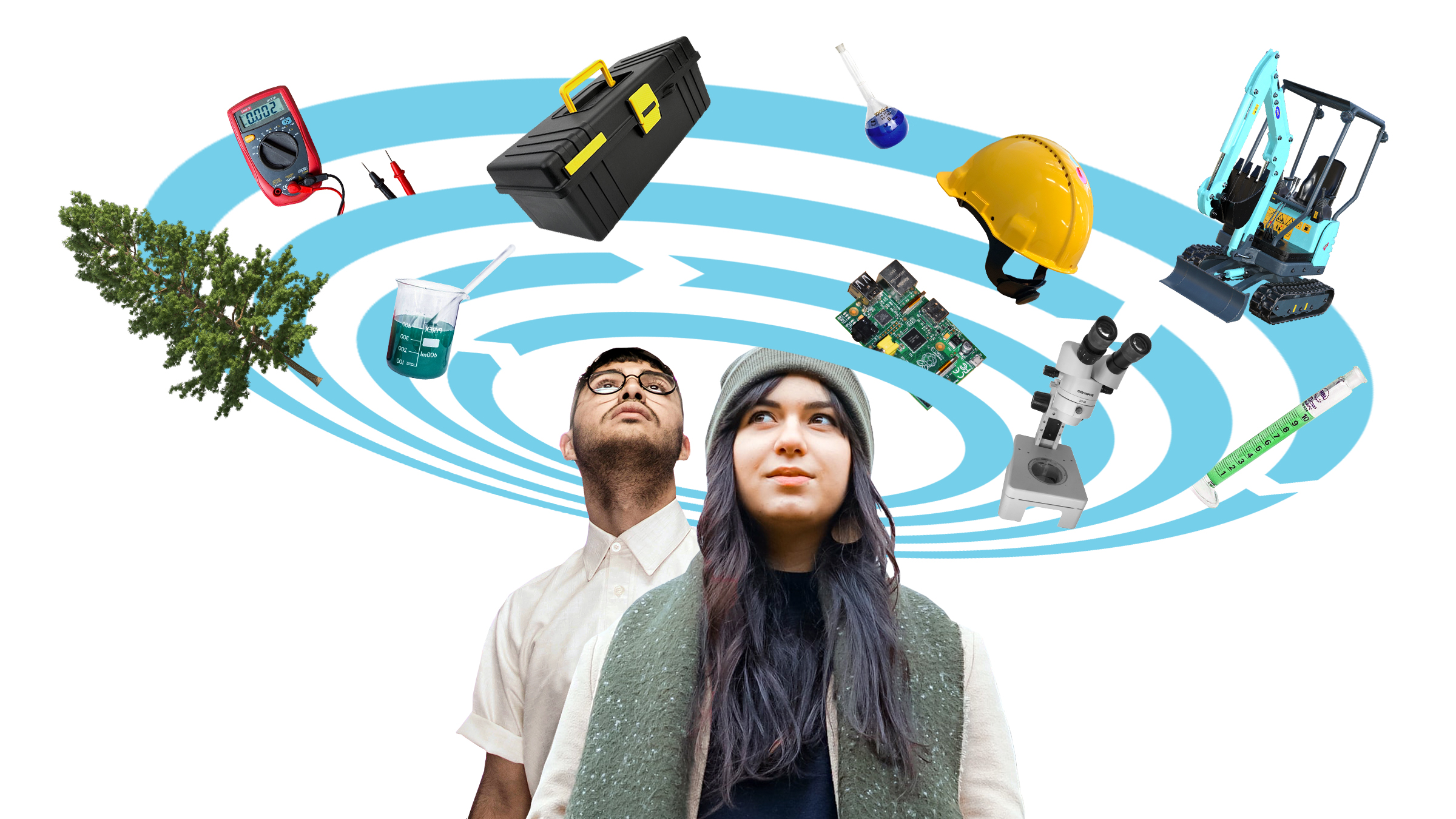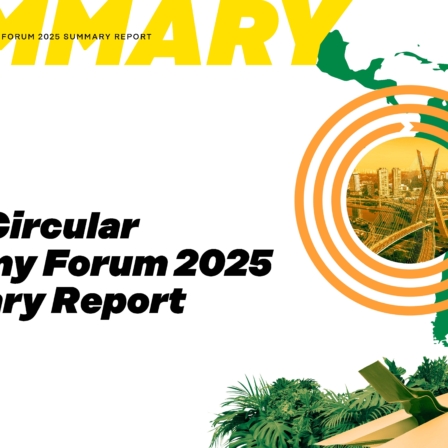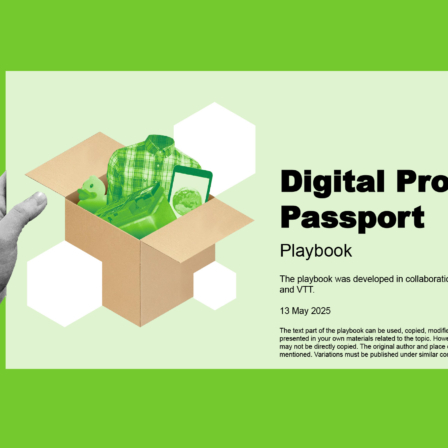Why is Sitra launching a call for funding for training pilot projects?
Employee competence building is one of the best ways of securing a fair transition to a carbon-neutral circular economy. Updating competence guarantees that professionals in different fields find new work as industries and operating methods develop towards the circular economy. The development of circular economy competence is also a good way of securing Finland’s international competitiveness.
On what grounds were the industries selected?
The choice of the industries used diverse criteria, such as the industry’s impact on employment and/or exports, the potential of the industry to promote the circular economy and the industry’s own interest in promoting the circular economy.
Why is the funding targeted at vocational institutions and lifelong learning?
The transition to a carbon-neutral circular economy requires competence building across all educational levels and industries. Sitra has supported and implemented various educational projects in primary schools, upper secondary schools and universities in particular. According to an international review by the Ellen MacArthur Foundation, Finland has the greatest amount of circular economy content in universities. There is work to be done at all levels of education, but in Finland additional investment is especially required in vocational training and updating the skills of those at work supporting a carbon-neutral circular economy.
How should the carbon-neutral circular economy be visible in the content?
A good pilot project identifies a key competence need associated with the industry that needs to be strengthened for the transition to a carbon-neutral circular economy. In the construction industry, for example, this can mean strengthening renovation-related expertise, in the technology sector teaching new circular economy technologies and in the chemical industry training related to new use of materials. We hope that the applicants themselves identify key competence needs in their respective sectors and propose innovative solutions to meet the competence needs.
What counts as a circular economy?
Projects associated with a carbon-neutral circular economy in diverse ways can apply. According to Sitra’s definition, the circular economy is an economic model that addresses the root causes of climate change, biodiversity loss and diminishing natural resources.
The circular economy does not continuously produce more goods but utilises the value of the products and materials already in use for as long as possible. Instead of ownership, consumption is based on using services.
My idea is connected to solar power, can I apply?
A carbon-neutral circular economy needs renewable energy, so you can also apply with a competence need development idea associated with solar energy.
Who will select the projects?
All applicants will complete the application form by the deadline. Once the application period is over, Sitra’s experts will assess the projects based on publicly announced assessment criteria. Representatives of the highest-scoring projects will be interviewed. The purpose of the interviews is to obtain additional information about the objectives of the project, its implementation, project team, link to the carbon-neutral circular economy and potential to become established as a permanent activity. Finally, a jury comprised of representatives from Sitra and the trade union and industry federation of each sector will select the projects to be funded.
Who can apply?
Pilot projects implemented in vocational institutions can be applied for by vocational institutions operating in Finland.
Lifelong learning pilot projects can be applied for by diverse educational institutions, such as vocational institutions, universities of applied sciences, universities or, for example, adult education centres or other educational institutions that offer lifelong learning-related content.
We hope that the implementation of the pilot projects will involve an extensive and diverse group of stakeholders, such as a consortium of several educational institutions, businesses, business consortiums, municipal organisations or other key parties.
A single main applicant will be selected for the project in the application phase (vocational institution or lifelong learning organisation).
Can the applicant be an undertaking?
The applicant can be an undertaking, such as a limited company that offers training, but if the project will be realised by an undertaking or other entity engaged in an economic activity, the funding will be granted as de minimis aid. The aid will be granted in compliance with Commission Regulation (EU) No 1407/2013 of 18 December 2013 on the application of Articles 107 and 108 of the Treaty on the Functioning of the European Union to de minimis aid (published in the Official Journal of the European Union, no L 352, 24 December 2013). An undertaking is an entity engaged in an economic activity, regardless of its legal status and the way in which it is financed. All activities in which goods or services are offered on certain markets are considered to be economic activities. Non-profit entities can also offer goods and services on the market, in which case the regulations on state aid will be applied to them. For additional information about Sitra’s de minimis conditions, see the call for funding notice.
Is it possible to apply from outside of Finland?
The call for funding is only for organisations that operate in Finland.
In which language will the training be conducted?
As a rule, the training can be conducted in Finnish, Swedish or English. If the applicant can provide good justifications, a project in other languages may also be considered.
What project size are you looking for?
The maximum amount of funding is EUR 200,000 per chosen applicant. The aim is to select one to three applicants from each sector, the technology sector, chemical industry and construction industry. The applicants may also submit the application as a consortium in which one of the applicants is the applicant with primary responsibility and with which Sitra makes the funding agreement. The applicant with primary responsibility is obliged to make the required agreements with the other members of the consortium. However, all of the members of the consortium must fulfil the terms and conditions of this call for funding.
Is a contribution required from the applicants’ own financial resources?
The amount of aid granted by Sitra is 100 per cent of all of the funding of the project. No personal contribution is required.
When should the pilot projects take place?
The projects must be completed and final reports returned by the end of April 2022. The projects may commence in June 2021 at the earliest, after the funding agreements have been signed.
Do the ideas need to be new?
The funded pilot project should add something new to the way in which circular economy expertise is currently developed in the industry or educational institution concerned. The idea can be brand new or already in use in another context, such as in another industry or country, but with the intention of now applying it to a new industry or in a new way.
Should the training content be publicly available?
Yes: Sitra aims to disseminate the results, knowledge and experience obtained as extensively as possible for use in society. By participating in the call for funding, the applying organisation undertakes that all of the information presented in the applicant’s application and ideas and materials created in workshops arranged by Sitra and during the process are public and freely available for public use. Sitra and the parties have the right to publish and use such information accumulated during the process. We require openness throughout the process so that the information and experiences accumulated in the process will also be available for research use. Sitra additionally has, for example, the right to publish the names of the applicants participating in the application process and their proposals on its internal and external websites and in its other activities. Meetings associated with the project will be public.
Does the form or method of teaching matter? Is hands-on learning appropriate, for example?
The most important criteria are identifying a competence need, the solution proposed for it, co-operation and the ability to create ongoing operations. We will be happy to receive applications whose implementation involves novel, imaginative or innovative operating methods, but this is not a prerequisite for funding. Hands-on learning suits the call for funding excellently.
Can an educational institution implement the project by itself?
There is no official obstacle to this, but in practice, the assessment criteria favour projects that involve an extensive and diverse group of stakeholders, such as a consortium of several educational institutions, businesses, business consortiums, municipal organisations or other key parties.
Can a single educational institution submit several applications?
Yes, as long as each application concerns a separate project.
Can I apply for funding for a project in which the circular economy is incorporated into existing training content?
Yes, as long as the piloted content genuinely adds something new to the existing content.
How many projects will be chosen for funding in vocational education? What about lifelong learning?
The aim is to find projects to be funded among both educational institutions and lifelong learning providers. The exact numbers of the projects will be specified as the selection process proceeds.


















Recommended
Have some more.